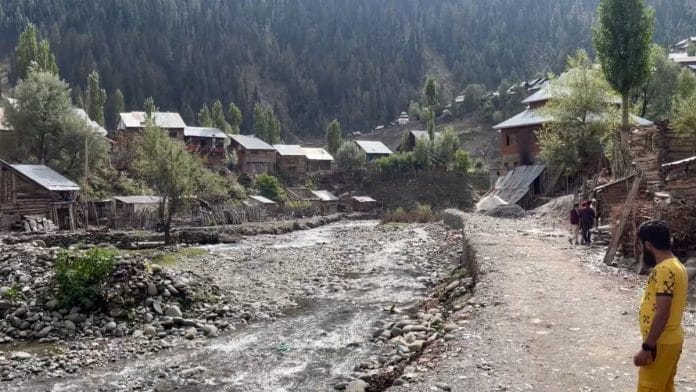Bagtore, Gurez: In the summer of 1949, Ghulam Muhammad Lone began his final march down the Kishanganga River, leaving behind his livestock, his land and his brand-new homeland. For more than a year, he had been hauling supplies and ammunition for troops of the 1 Grenadiers Regiment, who had evicted Pakistani irregulars from Gurez, where they had amassed in 1947 to assault Tragbal and Baramulla. The United Nations-brokered ceasefire agreement, though, put Ghulam Muhammad’s village—Taobat—in Pakistan-occupied Kashmir.
Fearing reprisals, members of fourteen families fled Taobat and took refuge on the Indian side of what is today called the Line of Control in the villages of Taarbal and Bagtore.
Today, the child born to Ghulam Muhammad in 1953 says he’ll be voting for Prime Minister Narendra Modi’s party. “Everyone in Kashmir betrayed us,” Muhammad Khalil Lone says bitterly. “Even today, after decades of service to India, we have no right to the land we live on.”
“This…this…this man,” says the son of the Muslim refugee from Pakistan, stumbling over the prime minister’s unfamiliar name, “is the only one who might give us justice.”
The showdown in Gurez
As northern Kashmir votes in the legislative assembly elections today, the Bharatiya Janata Party is gambling big on Gurez, pumping in campaign resources in the hope that the remote mountain constituency might just give the party its first-ever seat in the Muslim-dominated Kashmir region. The party’s candidate, Faqir Muhammad Khan, had won the 1996 elections as an Independent, and had come in a close second on a Congress Party ticket behind three-time MLA of the Jammu and Kashmir National Conference, former deputy speaker and minister, Nazir Ahmad Khan in 2002, 2008 and 2014.
Earlier this week, Defence Minister Rajnath Singh flew to Gurez to campaign for Faqir, highlighting the government’s work on road infrastructure and mobile internet connectivity in a region that is sometimes cut off by snow for several months a year. A new road linking Gurez to Drass and Kargil is almost complete, and the defence minister promised to build Gurez a tunnel under the Razdan Pass, which would ensure year-round road access.
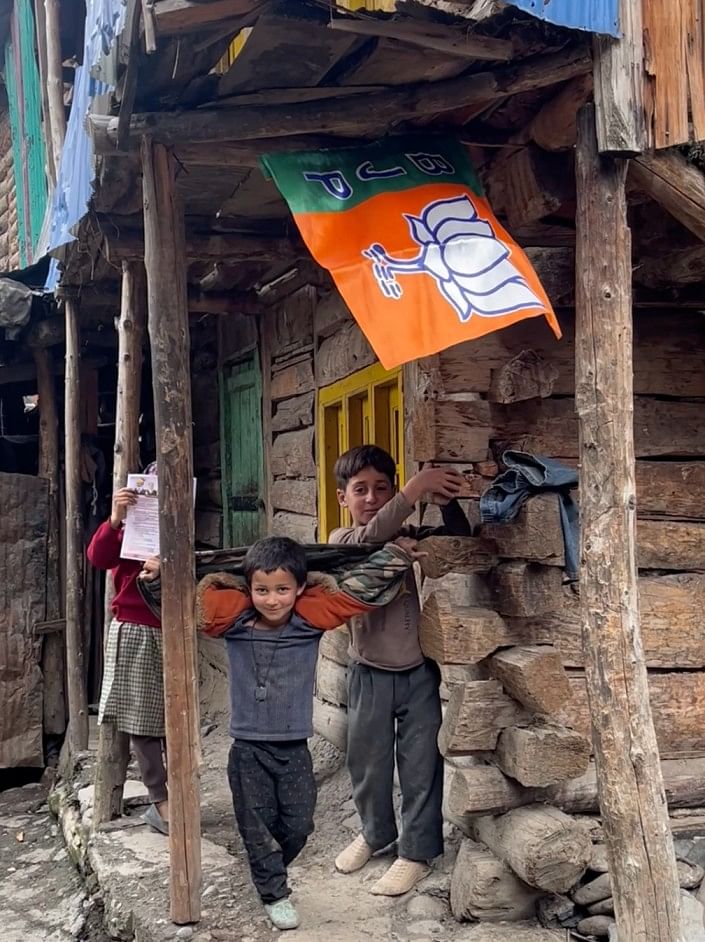
BJP workers from across Kashmir have been driving to Gurez’s most remote villages, delivering speeches in which they cast the election as a battle between a “corrupt Wazir”, or Minister, against a “Faqir”, or religious ascetic.
Even though Gurez is a tiny constituency with just over 22,291 voters—against say, Sonawari in the plains, which has 1,21,276—Faqir’s personal credentials give the BJP a real chance of registering a victory that the party hopes will lay the foundations for its growth in a region where it is widely seen as anti-Muslim. “There is no doubt this is the most expensive campaign Gurez has ever seen,” says one long-serving local police officer.
“The people who will vote for me would have supported me no matter what party I represented,” says Faqir candidly, “not because they support the BJP.”
He goes on, “But I chose to join the BJP because of the enormous development it has brought to Gurez. Prime Minister Modi has begun to transform our lives, and is the only leader who has given us a voice at the national level.”
Few dispute that since President’s rule was imposed in Kashmir five years ago, infrastructure has improved enormously. The road from Bandipora across the Razdan Pass, once a rutted track that took an entire day to traverse, is now in excellent condition. Local hotels and campsites have sprung up like wildflowers, catering to a growing flow of tourists.
A new college is coming up in Sheikhpora, close to the Line of Control. Government officials and teachers, local residents say, have been forced to attend work after geolocated attendance was introduced.
“The kids are all glued to the internet the whole day,” says Javed Khan, a primary school teacher in the village of Purani Tulail. “Every morning, I wake up terrified,” he jokes, referring to the case of Pakistan national Seema Haider, “I worry a new daughter-in-law from Pakistan will bring me my tea, with four kids in tow.”
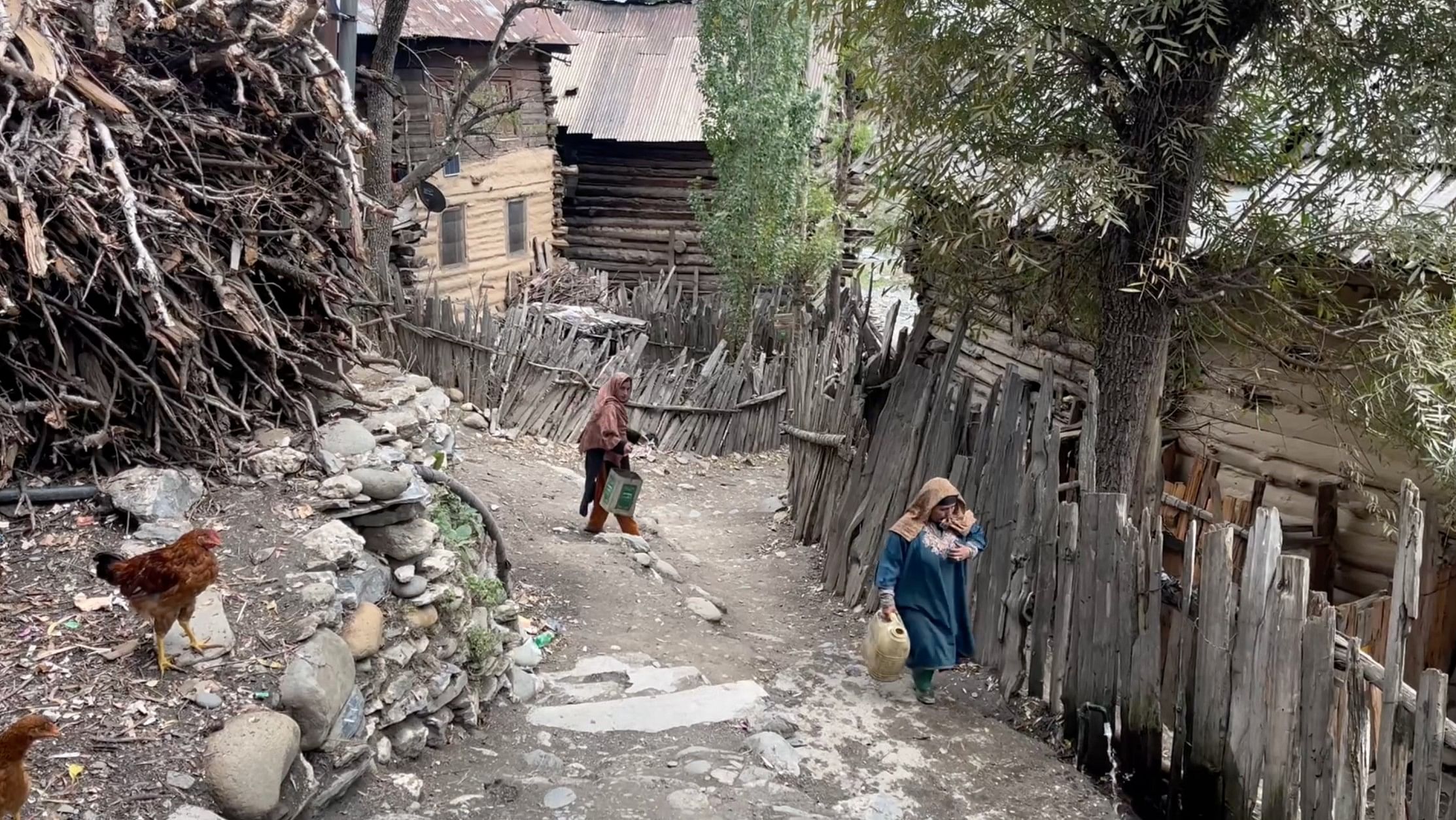
Also Read: With Kashmir in election mode, security bureaucracy unprepared for looming mountain war with Jaish
Identity versus development
For many in Gurez, the failure of local politicians to engender development is the root of their problems—and Khalil Lone’s story helps understand why.
For decades after 1947, he says, the Kashmir government’s bureaucracy simply ignored the refugees from Pakistan-occupied Kashmir, leaving them to fend for themselves. Then, in 1965, the Congress-led government of chief minister Ghulam Mohammad Sadiq, backed by Prime Minister Lal Bahadur Shastri, finally granted the refugees 11 marla—about 25 square metres—each of land to live on, and documents acknowledging their residence and citizenship were slowly delivered.
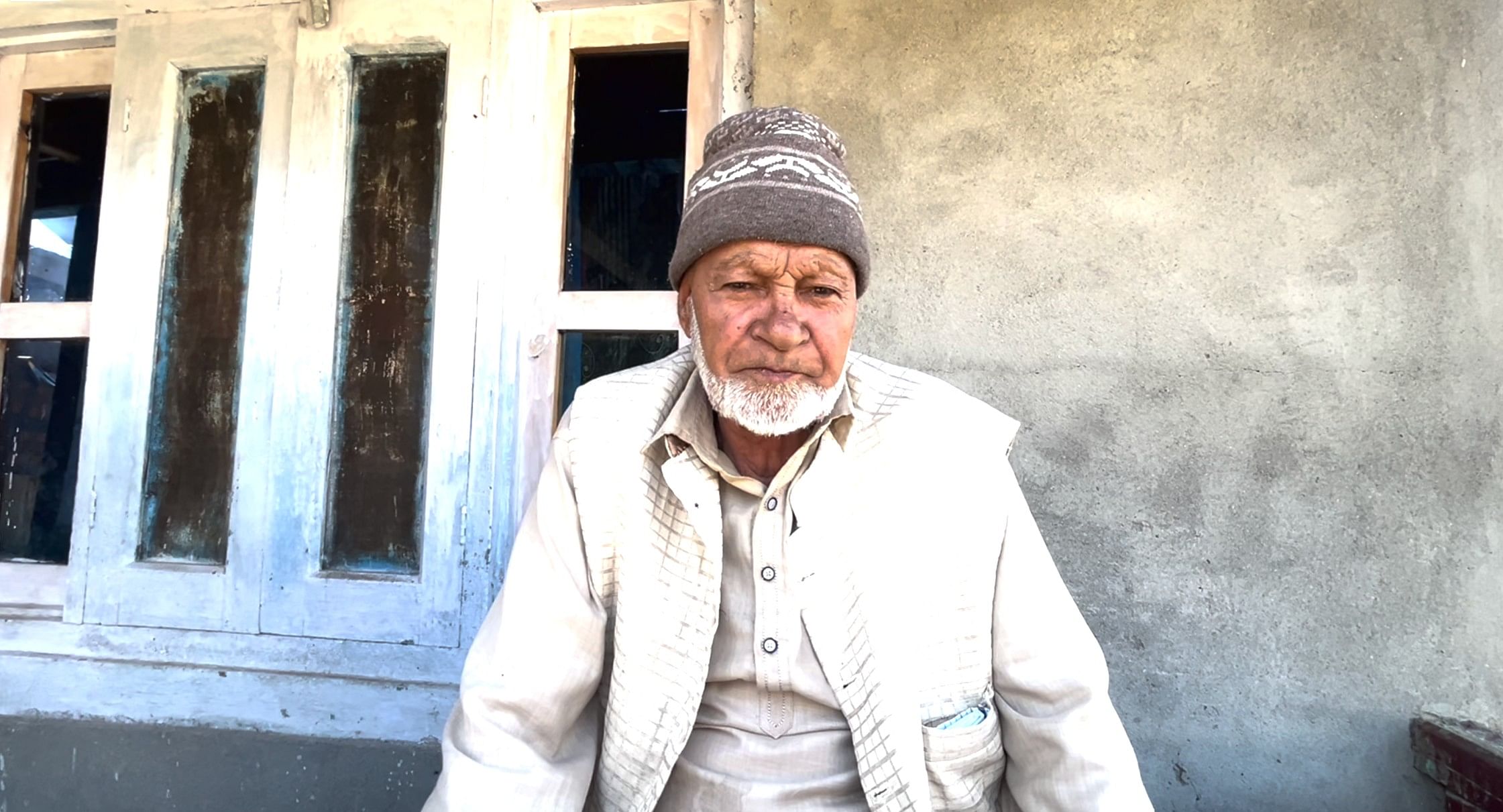
“Land ownership remained with the state, though,” Khalil complains. “That means we couldn’t sell our land or raise loans against it, or even get grants that the central government gives farmers. Even if we build a beehive or a chicken coop, the forest department arrives to tell us we have no right to be here.”
For Khalil, the core problem is that the National Conference gave patronage to its ethnic-Kashmiri constituency, ignoring Gurez’s Sheena-speaking Dards.
Khalil’s daughter, a trained nurse, complains that positions in the local primary health centre went to applicants from Jammu and Baramulla. “I lost out by three marks,” she says bitterly, “even though I studied at a school which was shuttered up for months on end.”
The National Conference government which came to power in 1996, Khalil complains, appointed high-school graduates to serve as school teachers under a scheme for backward areas, ignoring the claims of unemployed graduates. “The school never functioned anyway,” he says.
Akhtar Husain, a resident of the refugee hamlet in Bagtore, says that after his failed attempts to join the Army or the Central Reserve Police Force, he’d like to open a tourism-related business. “But I can’t raise a loan,” he says, “because my family can’t put up our land as collateral.”
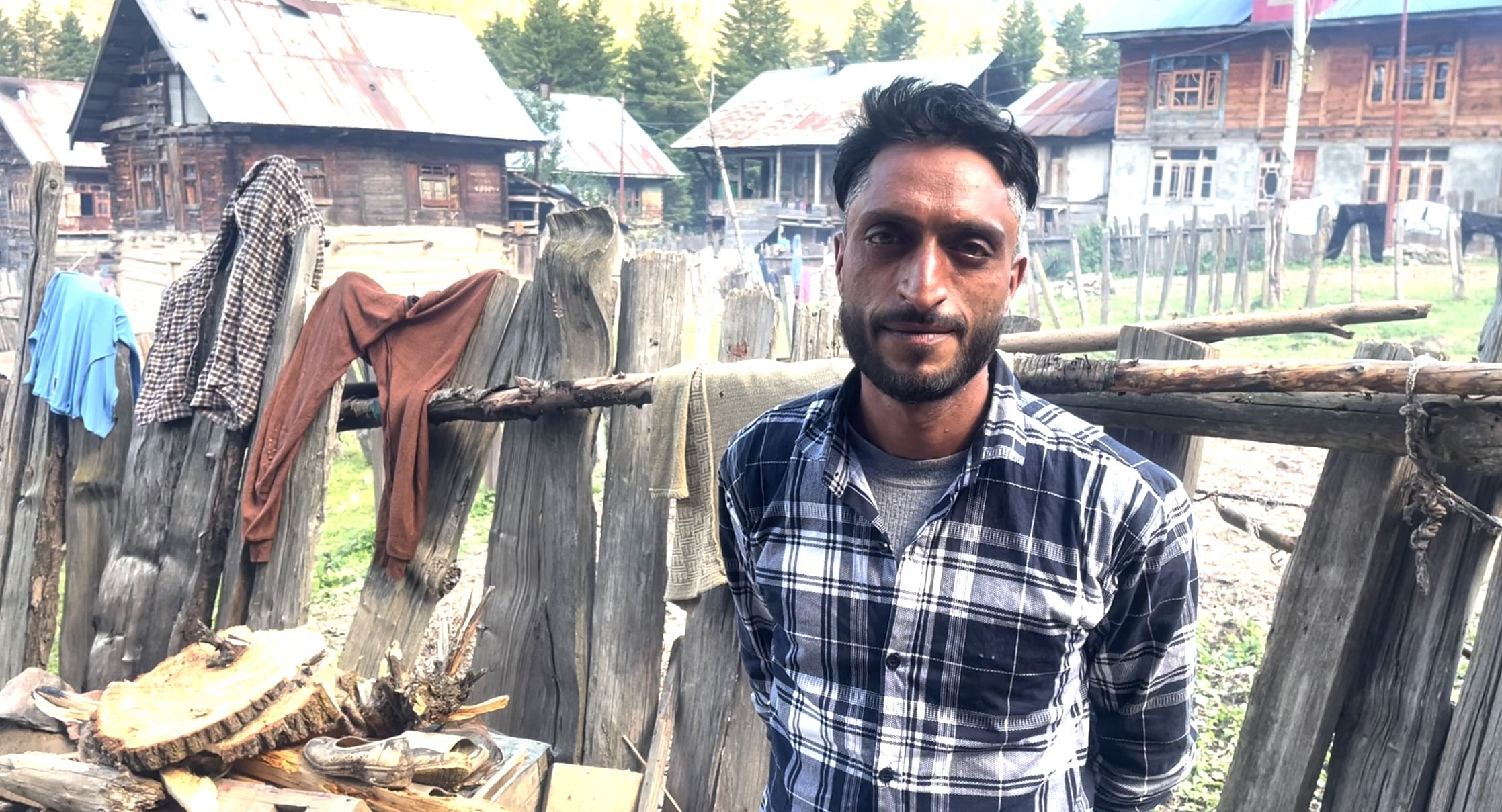
Sceptics in the crowd
Not everyone in Gurez is impressed by the development, though—and many blame Prime Minister Modi for ignoring Gurez’s special challenges. Following the abrogation of Article 370, Gurez lost job reservations designed to benefit backward areas. Few government departments have held recruitment drives to fill positions since 2019. Even though hundreds of young Gurezi men serve the army as porters, the town has no centre that coaches aspirants wanting to join the armed forces or central police.
Firdaus Ahmad Sheikh says he was denied a seat last year on one of the helicopters the government flies out of Gurez when it is cut off by snowfall, even though he produced papers showing that he had a job examination. “I begged the tehsildar and the police,” he says, “but I was shoved out of the door. That was my last chance to get a government position.”
Generations of Gurezis were content working as porters and as migrant labourers in the plains in the winter—but, armed with an education, young people have grown ambitions that are proving hard to meet.
“There is just no doubt about it,” says shopkeeper Muhammad Sabir Lone, a resident of the village of Sarad Aab. “Unemployment is the biggest issue here. The local politicians and government officials blame the Centre, and I have no idea if the Centre does what it is supposed to or not.”
Ejaz Ahmad, a resident of the hamlet of Wanpora, says that many government assistance schemes have not reached their intended beneficiaries. Every year, he observes, Gurez’s traditional wooden homes are damaged by heavy snowfall, imposing a severe financial burden on the poorest. “Even though I put in papers applying for a government home-building loan over a year ago, I haven’t got any response from the Tehsil authorities.”
To make things worse, Gurez residents—like economically underprivileged people across the country—now get five kilograms of free grain instead of ten. “This is really unfair to us,” says Ejaz. “Elsewhere in the country, people don’t have to stock up on food and fodder for the entire winter, and they don’t have a climate that lets them grow just one crop.”
Life insurance salesman Gulzar Ahmad Sheikh thinks Gurez needs more radical politics, like the Kashmir valley—a sign of the deep resentment unemployment is feeding among young people. To him, controversial Baramulla Member of Parliament ‘Engineer’ Sheikh Abdul Rashid is the kind of leader Gurez needs. “The government has been locking up innocent young people across Jammu and Kashmir,” he says, “and we’re at risk of losing our right even to speak freely. That’s what this election is really about.”
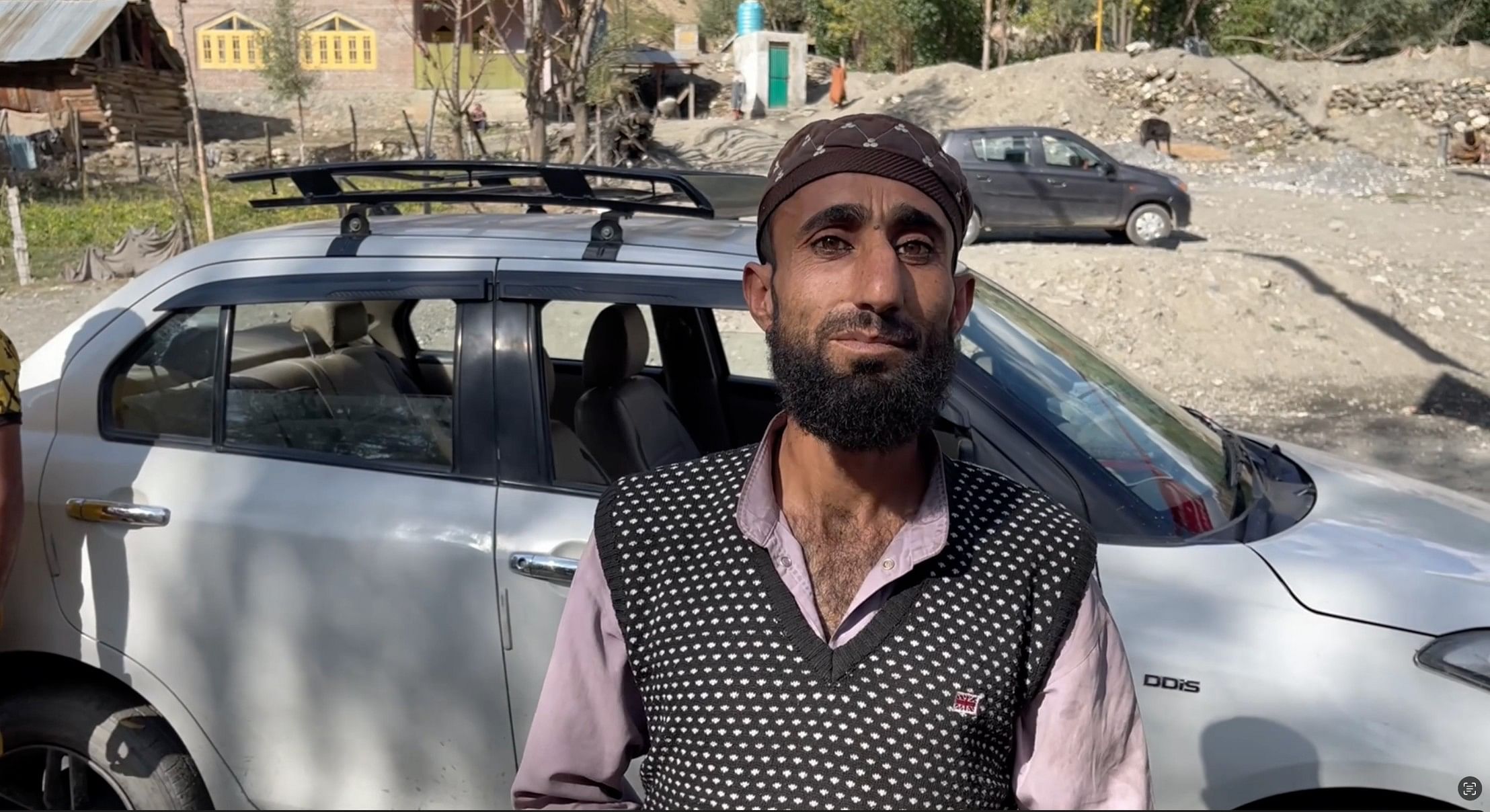
Faqir Khan himself acknowledges that wider religious resentments against the BJP might undermine his campaign. He claims—incorrectly—that the party is building one of the world’s largest mosques in place of the Babri Masjid in Ayodhya, on twice as much land as has been used to build the Ram Temple.
That’s not cutting much ice among some voters. “No more Wazir and Faqir,” Gulzar declaims. “We need something new.”
(Edited by Mannat Chugh)
Also Read: Kashmir’s ‘Generation Rage’ takes poll plunge after decade lost battling Indian forces on streets



